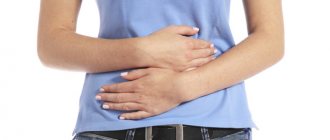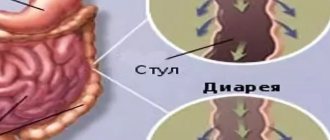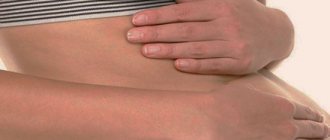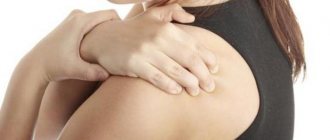A pregnant woman is very attentive to all the changes occurring in her body. After all, many of them, for example, loose stools during pregnancy, can indicate that the woman has some kind of health problems. A change in stool may be the cause of the disease, but it may also be temporary.
During pregnancy, various digestive problems are considered normal, since the expectant mother’s body undergoes a complete restructuring during this period, and many organs begin to work differently. But can abnormal bowel movements be dangerous for pregnant women, or is this rather the norm? And what to do to improve digestion?
Causes
The following factors can provoke loose stools during pregnancy:
- viral and bacterial infections;
- helminthic infestations;
- taking medications that lead to disruption of intestinal microflora (antibiotics);
- diseases of the digestive system;
- consumption of non-standard food products, for example, chalk, which is attributed to the “fads” of pregnant women;
- overeating, non-compliance with diet;
- deterioration of the immune system due to hormonal changes in the body;
- toxicosis of pregnant women;
- poisoning from poor quality food;
- nervous shock, anxiety, depression;
- intestinal dysbiosis.
Constipation during pregnancy
The changes in the body that occur during pregnancy often lead to constipation. The risk of their occurrence increases especially in the second and third trimesters. The reasons for this stool condition during pregnancy are the following factors:
- Increased levels of progesterone in the blood. This hormone helps reduce the tone of smooth muscles, including the intestines, which leads to fecal retention;
- Enlarged uterus. The growing uterus puts more and more pressure on the intestines, causing constipation in the last months of pregnancy;
- Reducing the amount of liquid you drink. Some expectant mothers suffer from edema, especially in the later stages. Therefore, they have to limit their fluid intake. This, in turn, increases the risk of developing constipation;
- Sedentary lifestyle. Many women move little in the last months of pregnancy, preferring to spend time lying or sitting. Lack of physical activity is a significant contributing factor to constipation.
Irregular bowel movements during pregnancy are dangerous due to the possible development of intoxication of the body, both in the mother and in the fetus. In addition, constipation is one of the main causes of hemorrhoids (enlargement and inflammation of the venous nodes of the rectum). Another danger of constipation in an expectant mother is that the intestine, overflowing with feces, puts pressure on the uterus, causing irritation. Such regular irritation can lead to an increase in uterine tone, and, as a result, to the threat of premature birth.
To prevent constipation during pregnancy, a woman should eat rationally, making sure that the menu includes vegetables and fruits, cereals and dairy products. It is also necessary not to forget about regular physical activity, which, of course, is feasible for a pregnant woman. Every day you need to go for walks in the fresh air, you can do simple gymnastics, having previously agreed on the exercises with your doctor.
Loose stools in the early stages
Loose stools that occur during early pregnancy are usually observed in the morning and are accompanied by signs of toxicosis - nausea and weakness. In this way, the expectant mother’s body adapts to its new status and the hormonal changes occurring within it.
The formation of the placenta in the first trimester of pregnancy negatively affects the functioning of individual systems. This process is most clearly reflected in the functions of the gallbladder and pancreas, against the background of which malfunctions in the digestive tract occur. Any changes in this area are accompanied by gross changes in protein and carbohydrate balance.
If during pregnancy in the first trimester, loose stool appears once after waking up in the morning and does not bring any discomfort to the expectant mother, no treatment is required. If a woman’s weight decreases, her general well-being suffers - you need to consult a doctor.
Self-diagnosis based on the nature of stool
To find out whether the clinic in question is dangerous during pregnancy, the consistency and color of stool is studied.
If it has a black tint, and there are lumps of uncooked food in it, the woman has dysbacteriosis.
Tar-black stool during pregnancy that smells unpleasant indicates intestinal bleeding.
More often it is localized in the upper parts of the digestive organs. In such cases, it is necessary to hospitalize the woman.
Dark brown stool that has a putrid odor and contains undigested food indicates a clear malfunction of the pancreas.
In such cases, defecation is observed in the morning or 30 minutes after eating.
Gray-white feces during pregnancy indicate liver and bladder diseases.
If at the same time the temperature has risen, even to a febrile level, and the apples in the eyes have additionally darkened (to a light yellow tint), a full examination is required.
Such a clinic indicates hepatitis. This disease is very dangerous during pregnancy for the woman and the fetus. In this case, the outcome of the disease does not depend on the etiology. Most often, with jaundice, pregnancy is terminated.
Frequent loose bowel movements with the release of light yellow or gray stool indicates enteritis, amyloidosis, and scleroderma.
With such diarrhea, the smell of rancid fat appears. This condition is characterized by inability to digest fats and carbohydrates. The fetus does not develop a skeletal system.
Dyspepsia is classified into 2 types:
- putrefactive – when food stagnates in the intestines and is not digested;
- fermentative – an increase in the frequency of bowel movements against the background of accelerated metabolism.
All of the above conditions during pregnancy require medication. They can be prescribed by a doctor only after examining the patient.
Taking medications on your own during pregnancy is prohibited. This may have a negative effect on the fetus.
Particular attention should be paid to diarrhea, which occurs with fever, vomiting, and bloody feces. This condition is associated with infection of the female body, which requires hospitalization.
In the later stages
Loose stools that appear during pregnancy in the later stages, from about 39 weeks, are often a sign of the imminent onset of labor.
By increasing the excretion of feces, the body strives to remove everything “unnecessary” so that the birth goes smoothly. That is, diarrhea may well be a harbinger of labor, but the timing of its appearance is strictly limited - about a day before the onset of true contractions and the breaking of water.
If there are still 2-3 weeks left before the expected date of birth, then you should not consider loose stools as a harbinger of labor. Most likely, the cause of diarrhea is based on other factors, so if loose stools appear at 36-37 weeks of pregnancy, it is necessary to take measures to eliminate it.
If diarrhea is accompanied by symptoms such as mucus in the stool, blood and fever, there is no need to hesitate to call an ambulance. Abdominal pain and the listed symptoms can increase the tone of the uterus and cause labor before the due date.
You should not be afraid of infectious diseases hospitals - they will not keep a healthy woman there. In addition, tests will quickly show the cause of loose stools, which means the problem can be eliminated in a short time. In addition, during pregnancy it is better to be under medical supervision rather than fighting diarrhea at home on your own.
Analyzes
To determine the cause of diarrhea, the doctor collects the pregnant woman's medical history. He asks the woman about the food she ate the day before, about possible contacts with infectious patients, and about the nature of the stool.
Instrumental examination methods include gastroscopy, colonoscopy, and sigmoidoscopy. But all these studies are permissible only in the early stages of gestation; later only ultrasound is used.
Laboratory diagnostics consists of examining stool for coprogram, bacterial culture and worm eggs. Biochemical tests can show changes in the acid-base balance, abnormalities in liver tests, pancreatic disorders and hormonal changes.
Types of diarrhea
Loose stools that appear during pregnancy can be classified into the following types:
- Acute diarrhea - lasts no more than 2 weeks, usually has a viral origin. Liquid stool passes on its own.
- Persistent diarrhea - lasts longer than 2 weeks. The reasons may be a lack of enzymes in the digestive organs, lack of proper treatment for a bacterial or viral infection, or intestinal dysbiosis.
- Chronic diarrhea is characterized by a long course - more than one month, accompanied by inflammatory changes in the walls of the small and large intestines.
Medical indications
During pregnancy, various problems occur in the functioning of the gastrointestinal tract, which is considered the norm, since the woman’s body is constantly being rebuilt, and the organs begin to work in a new way. Some changes are accompanied by diarrhea.
Loose stools during pregnancy are characterized by the rapid passage of stool through the large intestine. In this case, pregnant women may have foamy, dark, bloody, loose stools.
The condition in question is not an independent disease, since loose stools during pregnancy are considered the body’s response to a malfunction of certain organs.
This phenomenon may also indicate the presence of a certain irritant in the body.
To eliminate loose stools in a woman during pregnancy, it is necessary to identify the primary cause of its occurrence.
Obstetricians-gynecologists identify the following etiology of diarrhea in a pregnant woman:
- poor nutrition;
- toxicosis;
- extensive GP in the 1st trimester of pregnancy;
- In the last months of pregnancy, the body prepares for the upcoming birth. If loose stools are not accompanied by other dangerous symptoms, then therapy is not required.
Diarrhea in a pregnant woman can be caused by serious illnesses, since during this period the immune system weakens.
Loose stools bother pregnant women for the following reasons:
- intestinal infection;
- food poisoning;
- hereditary deficiency of certain substances in the body.
Which doctor should I contact?
A woman should contact an obstetrician-gynecologist if she experiences the following symptoms:
- loose stools more than 5 times a day;
- diarrhea is accompanied by sweating, weakness and pallor of the skin;
- there was vomiting during diarrhea;
- body temperature increased;
- there were sharp pains in the abdomen;
- traces of blood were found in the stool;
- Loose black stools that occur during any stage of pregnancy may be a sign of internal bleeding.
Treatment
To eliminate loose stools in an expectant mother, it is recommended to normalize nutrition by removing foods that irritate the intestines from the diet.
During diarrhea, you should not eat fatty and spicy foods, strong broths, drink milk, eat sour cream and cottage cheese. The basis of nutrition should be oatmeal, rice and buckwheat porridge, boiled meat and fish.
In addition to nutritional correction, treatment for the expectant mother may consist of taking the following medications:
- Activated carbon. Quickly removes toxins from the intestines without having a harmful effect on the fetus. Read more about activated carbon during pregnancy→
- Smecta. Produces mucus in the intestines, which envelops pathogenic microflora and removes it naturally. Does not cross the placenta. Read more about the use of Smecta during pregnancy→
- Enterosgel. Evacuates bacteria and toxins from the intestines, preventing their absorption into the systemic bloodstream. Improves the functioning of the stomach, liver and kidneys, protects the intestinal walls from inflammation and the development of erosive defects. Read more about the drug Enterosgel→
- Regidron. Prevents dehydration, normalizes water and electrolyte balance, fights acidosis. Read more about Regidron→
How should you be treated?
Many drugs are contraindicated for expectant mothers, therefore, if the situation is not critical, they try to limit treatment to folk remedies and nutritional correction.
If there are signs of infection, antibiotics may be needed. But you shouldn’t choose medications on your own. The specialist will select the most harmless therapy for the unborn child.
Drinking regime is of great importance. The condition returns to normal faster if you drink a sufficient amount of purified still water or unsweetened tea.
Prevention
To prevent diarrhea from catching the expectant mother by surprise, it is necessary to pay attention to preventive measures.
Following these rules will help prevent the development of diarrhea during pregnancy:
- eating only fresh, high-quality foods;
- refusal of catering;
- maintaining personal hygiene;
- avoiding stress.
Loose stools for a pregnant woman are a serious challenge. In order not to risk your health and not to put the baby’s health at risk, it is necessary to control nutrition throughout the entire period of pregnancy and seek medical help at the first symptoms of diarrhea.
Author: Olga Rogozhkina, doctor, especially for Mama66.ru











